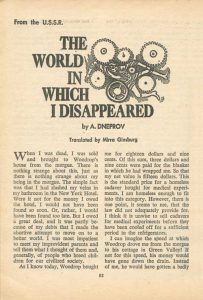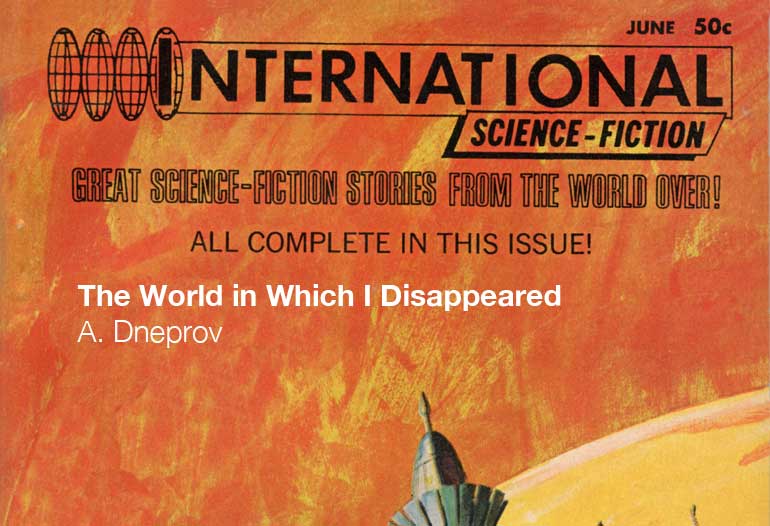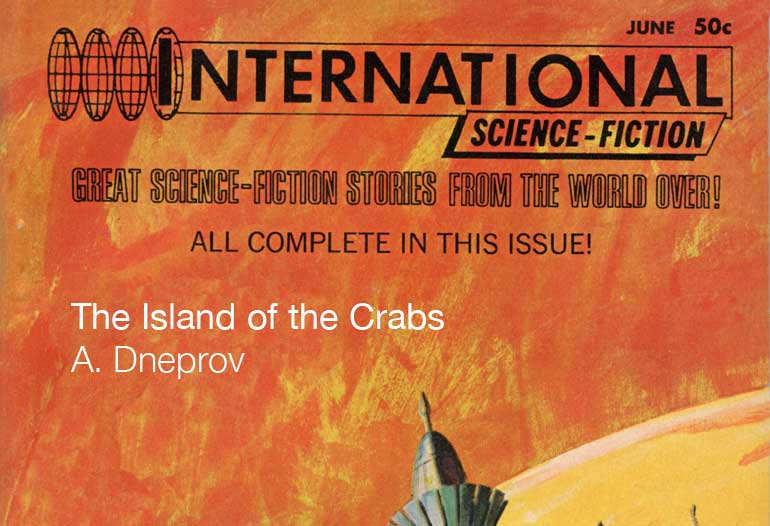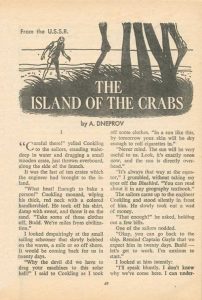 From International Science Fiction No. 2 (June 1968):
From International Science Fiction No. 2 (June 1968):
The second tale in this issue by A. Dneprov, from the U.S.S.R., is a humorous one. “The World in Which I Disappeared,” translated by Mirra Ginsburg, is built on two ideas: resurrection of the dead and creating the perfect society—both through science.
In the words of Harry Woodrop, Doctor of Medicine and Sociology and Honorary Member of the Institute of Radio-Electronics:
“Schizophrenics, professors and senators are trying to improve our society with the aid of committees and subcommittees, foundations, voluntary commissions, economic conferences and ministries of social problems. Nonsense! All it takes is four hundred and two triodes, one thousand, five hundred and seventy-five resistors, and two thousand, four hundred and ninety-one condensers, and the whole problem is solved.”
That’s the theory anyway. In practice, Dr. Woodrop’s experiment requires daily adjustments until its dead-man-walking participant concludes things when he adds one of his own.



